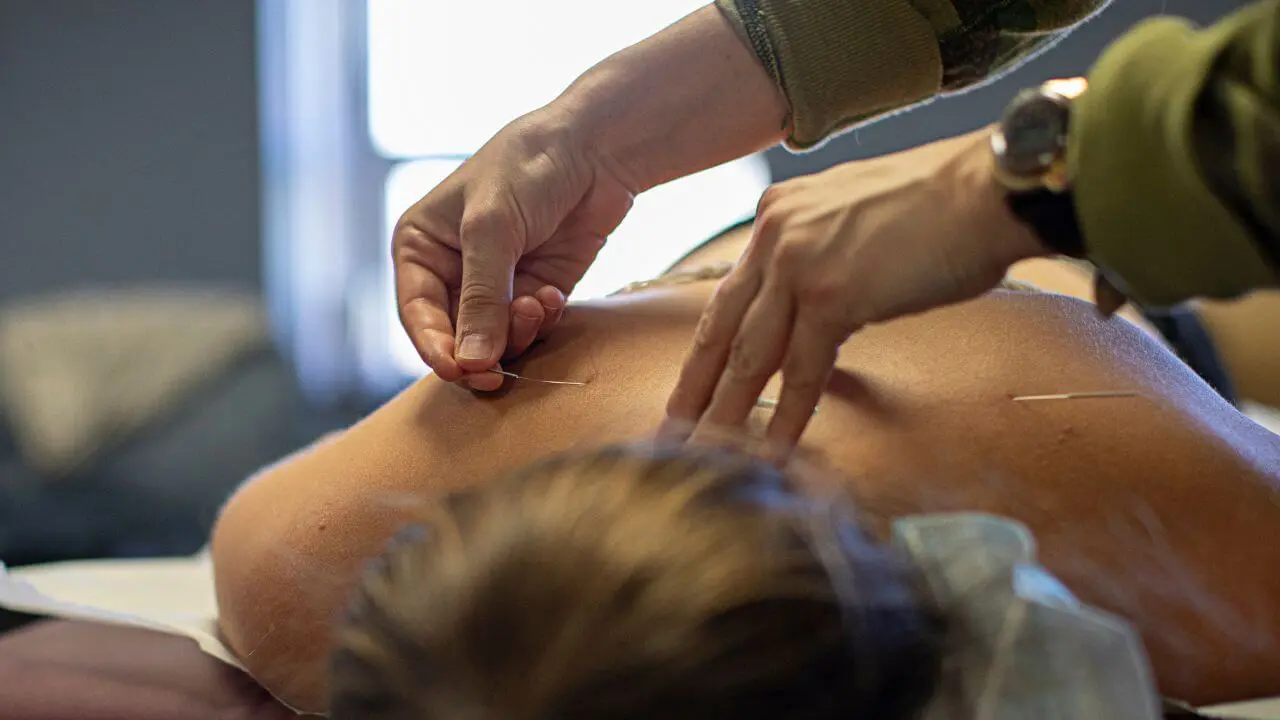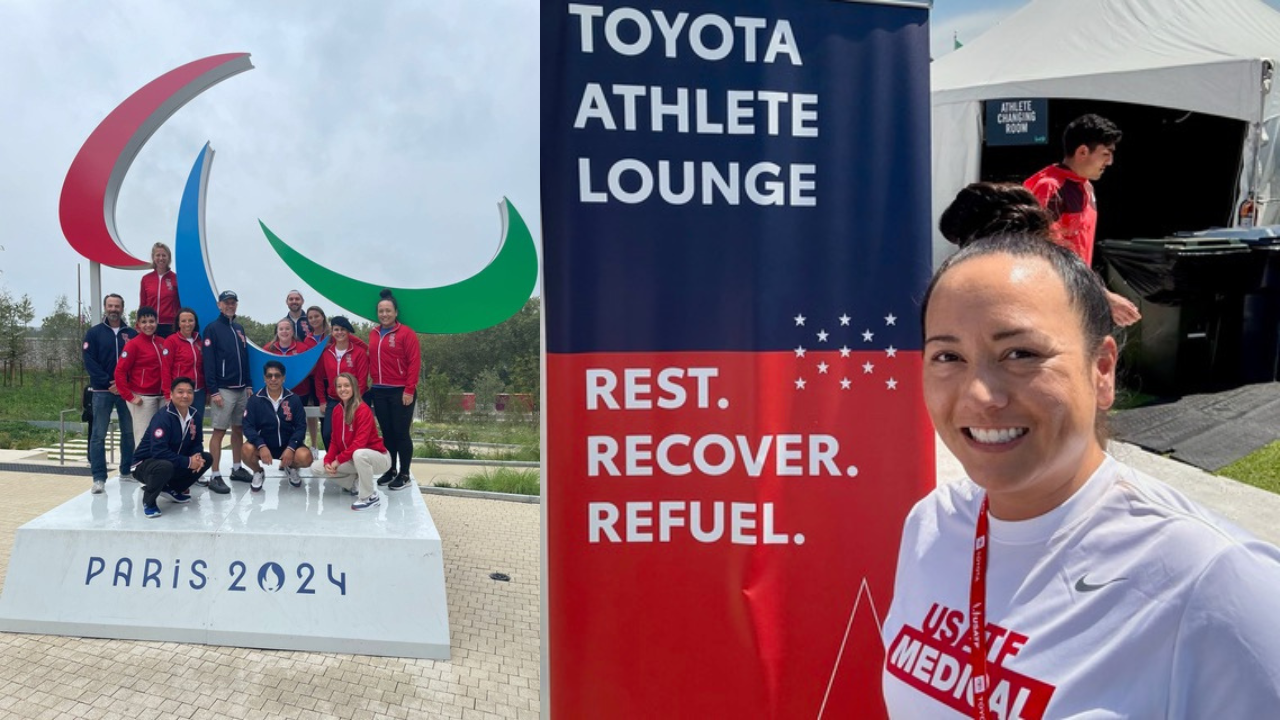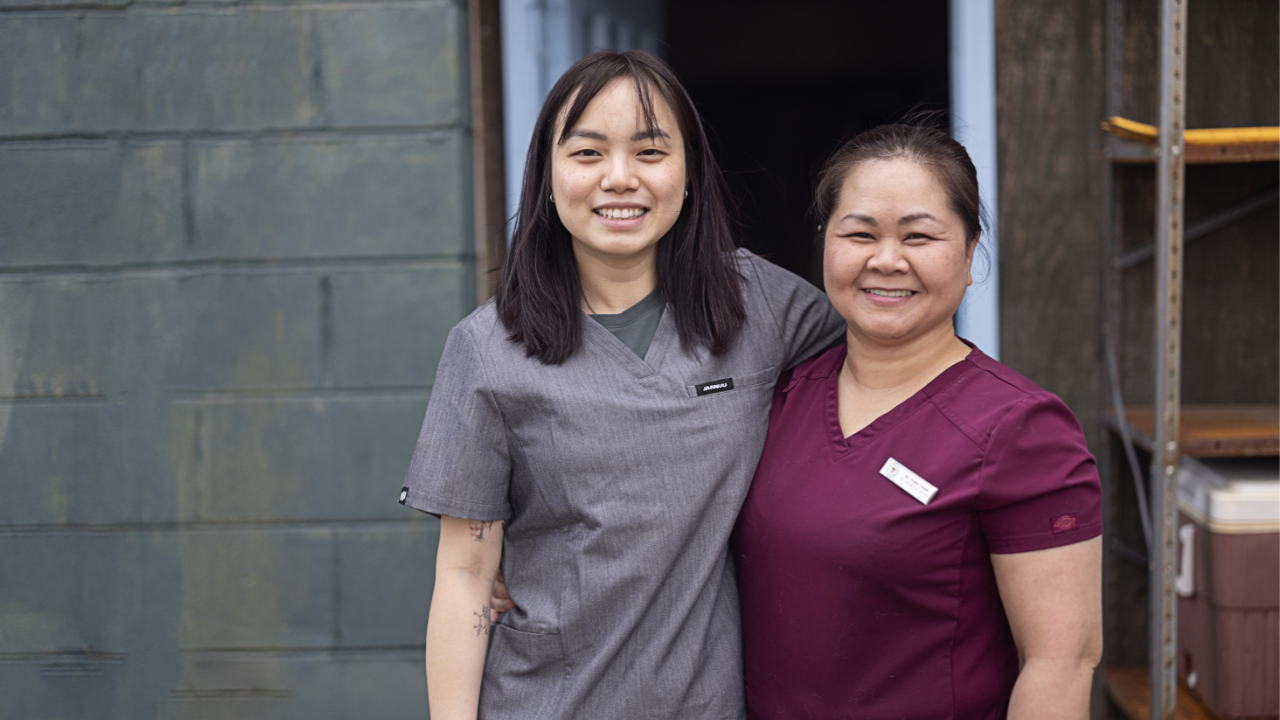Acupuncture Careers: Working in a Hospital System (Part 1)
Part one: what it’s like to work in a healthcare system
Traditionally, most licensed acupuncturists (LAcs) work in private practice. Currently, a growing number of professionals pursuing Acupuncture Careers are working in hospital systems and clinical environments. What could a job in a health system look like? We talked to two acupuncturists at Mayo Clinic to learn about their experiences.
Jason Calva, Ph.D., L.Ac, graduated from Northwestern Health Sciences University in 2014 and went on to get his Ph.D. at Tianjin University in China. He worked in the NWHSU Bloomington Clinic among other places before going to Mayo Clinic full-time.
Sara Bublitz, MAcOM, L.Ac, graduated from Oregon College of Oriental Medicine in 2009 and studied in China for three months, doing an externship at Nanjing TCM University and years later trained and worked for a month in a spinal hospital in Seoul, South Korea specializing in spinal stenosis and chuna [Korean tuina]. She then moved back to Minnesota and eventually became a clinic supervisor at NWHSU while also working in private practice in Maple Grove, MN. She joined Mayo Clinic full-time in 2014 where she currently works as not only an acupuncturist but an instructor of Medicine.
Working in a health system vs. private practice
Working in a hospital system is a very different experience than running your own clinical practice. Private practice is much more flexible: you set your own hours, policies, and procedures. In private practice you’re likely also doing your own laundry, paperwork, marketing, scheduling, and more. In a hospital setting, you’re focused on the work of treating patients, and in some cases, like at Mayo Clinic, doing research.
At Mayo Clinic, acupuncturists work on the hospital floors, in an outpatient clinic, and in the Rejuvenate Spa. Jason and Sara split their time between the outpatient clinic and the Rejuvenate Spa, which are both busy and often booked out far into the future.
Though a spa doesn’t necessarily sound like clinical work, that’s where Sara and Jason see many fertility and oncology patients. “I have a lot of patients that prefer to have acupuncture care in a separate setting from where they receive their cancer treatments or their fertility treatments,” shared Sara. “They want that other outlet that isn’t necessarily triggering for their emotions.”
Treating a Unique Patient Population
In the outpatient clinic, patients are referred to Sara and Jason by M.D.s. “The most common thing that we’ll see are usually pain related conditions, so migraine headaches, back pain, any kind of neuropathy,” said Jason about the outpatient clinic. “Second to that is probably oncology care.”
Though pain is a common condition for all acupuncturists to treat, Sara has noticed a difference between her Mayo patients and the patients she saw in private practice.
“When you’re in a hospital setting, you get to learn about all of these unique conditions that maybe you’ve never heard of before. In private practice, everyone is generally pretty healthy but having some aches and pains, whereas at Mayo people are really sick.
So, the treatment protocols are very different. And sometimes that can be a little bit overwhelming. like, ‘wow, I’ve never heard of this condition. How do I treat it?’ Well, then you take a step back and you look at the person. And you get to see amazing results, so it’s very rewarding.”
Working Integratively and Building Awareness in a Western Medicine Setting
Working in a healthcare system offers the unique opportunity to collaborate directly with physicians, nurses, and other healthcare professionals. “Within our group of integrative medicine and health we talk with other providers pretty regularly,” shared Sara. “We get together with the integrative physicians and bounce ideas off them, and they do the same with us.”
The collaborative approach has led to acupuncture, massage, and physical therapy being the standard of care for the first treatment of pain. “We’re now the first line of defense for our patients with treating their pain, which is huge,” shared Sara.
Acupuncturists in health systems share records with other providers. This enables everyone to work together with the same information for an entourage effect. The integrative care approach is exciting and growing. It will continue to grow as more providers work with acupuncturists and see the results in their patients.
“it’s a positive feedback loop, where providers hear good things, they keep sending patients to us, and now we’re booked out,” shared Jason.
Sara shared that when she first started, there was skepticism among providers about her work. “Back then I had to answer more questions on ‘does this really work?’” she said. “I rarely get those questions anymore.”
Contributing to Research
For Jason, a big benefit to working at Mayo Clinic was the opportunity to contribute to research. “Because of my PhD I wanted to contribute to research in some way. That’s a lot harder to do—or impossible—when you’re in private practice. You can do small case studies, but to do long term bigger scale research projects you need the help of a bigger hospital or an institution.”
Right now, he’s the lead researcher on a study involving post-COVID loss of smell and taste, and how acupuncture may help kick start the process of regenerating the nerves involved.
If you want to learn more about how you could do this kind of work, check out part two of this story: how to prepare for an acupuncture career in a healthcare system (LINK). You can also explore NWHSU’s Master of Acupuncture and Doctor of Acupuncture with Chinese Herbal Medicine Specialization.






